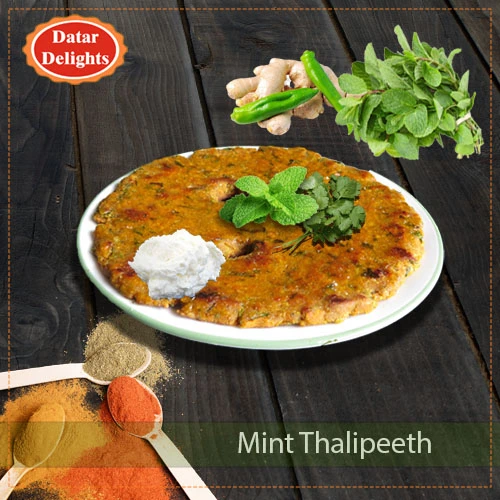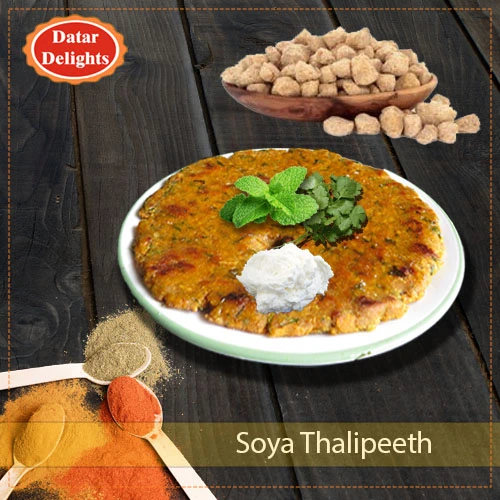
Mint flavour Thalipeeth
May 20, 2023
Soya thalipeeth
May 20, 2023
Here are some benefits you may not have known:
1. Better eyes and better immunity
Do you ever wonder why pumpkin is so vibrantly orange? Its color is due to beta-carotene. Our bodies convert beta-carotene into vitamin A, which is beneficial for our eyes and immune system. In fact, a one-cup serving of canned pumpkin provides 250% of our recommended daily amount of Vitamin A!
2. Food for thought
Like all fruits, pumpkin is a good source of fiber. Canned pumpkin contains 7 grams of fiber per one-cup serving. Fiber is beneficial for removing cholesterol from the body, preventing blood sugar spikes, and helping regulate bowel habits. Additionally, fiber helps us feel fuller longer, which can reduce overeating and assist in achieving and maintaining a healthy weight.
3. Heart-healthy
If you aim to eat heart-healthy, then pumpkin is the perfect choice! Heart-healthy eating involves selecting foods that are low in fat, salt, and sugar while being high in fiber. Pumpkin checks all these boxes. A half-cup serving of canned pumpkin has almost no fat, minimal salt, and no added sugar. Bid farewell to guilt and embrace flavorful nutrition that is rich in fiber.
4. P is for potassium
Nearly one-third of Americans have high blood pressure. Incorporating pumpkin into your diet can help lower blood pressure as it contains potassium, which aids in blood pressure control. Potassium also promotes bone health and reduces the risk of diabetes. Just a half-cup serving of canned pumpkin provides approximately 10% of your daily potassium requirement.
5. Low in calories
Pumpkin dishes are often associated with desserts that are calorie-dense. However, pumpkin itself is not the source of high calories. Most of the calories in pumpkin-based desserts come from added fat and sugar used to enhance their taste. Therefore, we may have a misconception that pumpkin is high in calories. In reality, one cup of canned pumpkin contains only 83 calories. Moreover, pumpkin is 90% water.
6. Nutrient-dense food
Considering its low calorie content, you may wonder how pumpkin can offer significant nutritional benefits. In fact, many fruits and vegetables are considered nutrient-dense foods. They provide a wide array of vitamins and minerals while being low in calories. Think of it as maximizing the nutritional value for the calories consumed. When consuming pumpkin, you can obtain a diverse range of health benefits without consuming excessive calories.
7. Hidden treasure inside
When we think of pumpkin, we often associate it with delicious sweet treats like pumpkin pie, pumpkin spice lattes, or pumpkin doughnuts. However, let’s not forget about the seeds! Pumpkin seeds may be small, but they are packed with nutrients. They contain magnesium, zinc, and fiber, offering additional health benefits. According to the American Heart Association, a quarter-cup of pumpkin seeds provides almost half of our daily recommended amount of magnesium. Magnesium helps lower blood pressure and maintain good bone health. Unfortunately, about 50% of Americans do not consume enough magnesium in their diets. Fortunately, this mighty seed can be a simple solution to that.
